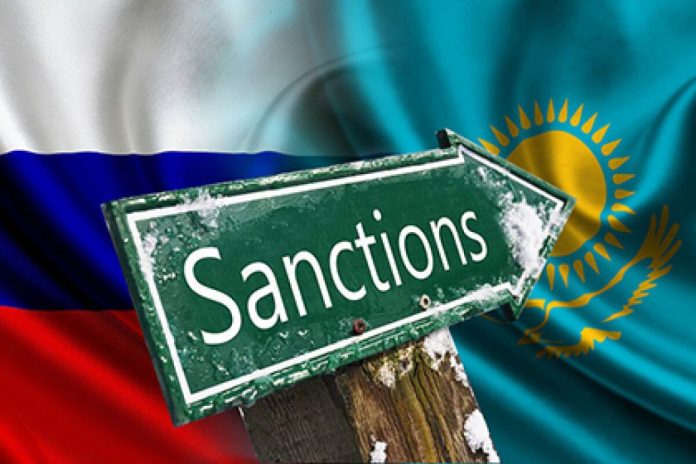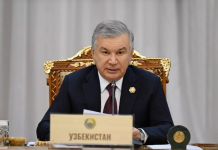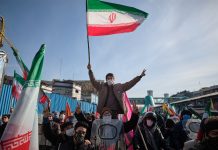By Thomas Cserep
As tensions between the West and Russia intensify due to the ongoing Russian-Ukrainian conflict, Kazakhstan’s strategic importance as a partner to both the United States and the European Union has become increasingly evident.
With its extensive trade relations and a shared border with Russia, Kazakhstan faces the challenge of balancing its foreign policy ambitions with Western demands while safeguarding its national interests.
A key player in Central Asia, the landlocked country has historically shared extensive economic ties with Russia. Since the Russia-Ukraine tensions have intensified, the western sanctions against Russia have put Astana in a complex position of managing its trade dynamics. The sanctions against the transportation of goods from Kazakhstan to Russia have seen a sharp increase over time.
With the lack of direct sea access, these sanctions have aggravated the task of Kazakhstan and its fellow Central Asian countries who want to progress, but also maintain a cordial diplomatic relationship with the key global players.
Strategic role in Global Energy Security
Amid the ongoing Russian-Ukrainian conflict, the West is becoming increasingly aware of Central Asia’s role in safeguarding global energy security.
Kazakhstan stands as a crucial partner for energy cooperation in Central Asia, to the major global powers, including the U.S and the EU. Washington and Brussels are using economic diversification as a geopolitical tool to distance the Central Asian countries from Russia and decrease their dependence on it.
As a result, in order to avoid Western sanctions, the Central Asian states are taking measures to find alternative channels for further participation in globalization without Moscow.
Kazakhstan, like all countries in the region, continues to depend on the protracted confrontation between the West and Russia. Sanctions make their own adjustments to the current nature of cooperation between the Central Asian states and the Russian Federation, both on the C5+1 (Central Asia and US) platform and in a bilateral format.
European Union (EU) Sanctions Envoy David O’Sullivan visited Astana in June 2024, and held high-level meetings with Kazakh authorities to reiterate the importance of supporting Western-imposed sanctions. During the visit, he also commended the “progressive decline” in the import and re-export of dual-use sanctioned items to Russia via Kazakhstan.
Diplomatic Tensions with the West
Although Kazakhstan has been cautiously complying with the Western sanctions on Russia, it is also trying to look out for its interests. On August 16, Kazakhstan’s Deputy Prime Minister and Trade Minister Serik Zhumangarin, said in an interview to Bloomberg that it will review its approach to enforcing sanctions against Russia, “prioritizing its own economic interests”. This stance highlights Kazakhstan’s ongoing efforts to balance external pressures with domestic economic priorities.
Astana’s efforts to develop a unified regional position for all Central Asian states are necessary to reduce the consequences of Washington’s sanctions policy and form “strategic autonomy” from the Russian Federation.
The ongoing anti-Russian sanctions force Kazakhstan to respond promptly to emerging political and economic threats, transforming the existing model of relations into a pragmatic alliance with the multipolar geopolitical players of the United States, China, Russia, etc.
The Path Forward
In this significant power conflict, Kazakhstan which sits between the East and the West plays a crucial role.
The ongoing anti-Russian sanctions force Kazakhstan to respond promptly to emerging political and economic threats. To make the best of the situation, Kazakhstan has been transforming the existing model of relations into a pragmatic alliance with the multi-polar geopolitical players of the United States, China, Russia and others.
US State Department also recently noted that Kazakhstan has been developing its transit capacity and alternative transport routes, primarily the trans-Caspian Middle Corridor, to support increased external trade flows.
On 11 August, Kazakh Ministry of Economy, Nurlan Baibazarov announced that the country fully complies with Western sanctions against Russia.
The western sanctions on the country need to be calculated enough to constraint Russia, and not exceed to a point where it strikes a wrong note.
The diplomatic pressure from the American side on Kazakhstan, forced from the position of the State Department may get concerning for Kazakhstan after a point. Although, these sanctions are aimed to restrict Russia, but while doing so, they also cut down the trade options for Kazakhstan.
Besides, Russia and America, Kazakhstan being an emerging central power is also seeing deeper political and economic ties with China. In 2023, Chinese investments in Kazakhstan reached $1.81 billion.
In July 2024, Astana hosted the Shanghai Cooperation Organisation (SCO), which was attended by Russian President Vladimir Putin and China’s Xi Jinping. SCO which was founded in 2001 as a counterweight to the West includes Central Asian countries, India, Pakistan and Iran.
As Kazakhstan seeks to avoid becoming entangled in a geopolitical rivalry between Russia and the West, excessive diplomatic pressure from the U.S. could rather drift it closer to Russia and China.
In an evolving geopolitical climate, Kazakhstan’s ability to navigate these challenges will determine its continued stability and growth in an increasingly multipolar world.






